
Douala: The Pulsating Heart of Cameroon
Douala, the largest city in Cameroon, is a bustling metropolis that serves as the economic powerhouse of the nation. Located along the Wouri River and the Atlantic coast, Douala is a dynamic blend of modernity and tradition. From its lively markets to its vibrant arts scene, the city offers a rich cultural experience for every visitor. The city's most famous landmark is the Douala Maritime Museum, where you can learn about the history of Cameroon's maritime trade. For those interested in contemporary African art, the Doual'art Centre is a must-visit. It showcases works by both local and international artists, reflecting the city's diverse cultural landscape. Food lovers will delight in Douala's culinary scene. The city is renowned for its street food, particularly grilled fish and spicy plantains. Be sure to explore the bustling Bonapriso and Akwa neighborhoods, where you can sample local dishes and experience the city's nightlife. Nature enthusiasts can enjoy a day trip to the nearby Edea Reserve or the Wouri River estuary, where you can see mangroves and exotic bird species. For a relaxing day at the beach, head to Limbe, just a short drive from the city. Whether you're interested in culture, cuisine, or nature, Douala has something to offer everyone.
Local tips in Douala
- Carry small denominations of the local currency, CFA Franc, as many vendors and markets do not accept credit cards.
- Visit the Marché des Fleurs for unique souvenirs and traditional crafts. It's a great place to find handmade jewelry and local artwork.
- Plan your visit during the dry season (November to February) to avoid heavy rains and enjoy more comfortable weather.
- Use reputable taxi services or ride-hailing apps for transportation, as public transport can be crowded and confusing for newcomers.
- Learn a few basic phrases in French, as it is the most commonly spoken language in Douala and will help you navigate the city more easily.
Neighbourhoods in Douala
Douala: The Pulsating Heart of Cameroon
Douala, the largest city in Cameroon, is a bustling metropolis that serves as the economic powerhouse of the nation. Located along the Wouri River and the Atlantic coast, Douala is a dynamic blend of modernity and tradition. From its lively markets to its vibrant arts scene, the city offers a rich cultural experience for every visitor. The city's most famous landmark is the Douala Maritime Museum, where you can learn about the history of Cameroon's maritime trade. For those interested in contemporary African art, the Doual'art Centre is a must-visit. It showcases works by both local and international artists, reflecting the city's diverse cultural landscape. Food lovers will delight in Douala's culinary scene. The city is renowned for its street food, particularly grilled fish and spicy plantains. Be sure to explore the bustling Bonapriso and Akwa neighborhoods, where you can sample local dishes and experience the city's nightlife. Nature enthusiasts can enjoy a day trip to the nearby Edea Reserve or the Wouri River estuary, where you can see mangroves and exotic bird species. For a relaxing day at the beach, head to Limbe, just a short drive from the city. Whether you're interested in culture, cuisine, or nature, Douala has something to offer everyone.
When is the best time to go to Douala?
Iconic landmarks you can’t miss
Rond-Point Deido
Explore the vibrant culture and historical significance of Rond-Point Deido, a lively landmark in the heart of Douala, Cameroon.
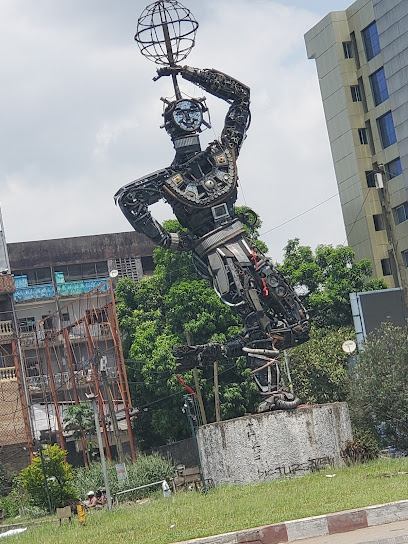
Parcours Vita
Douala's premier outdoor fitness park: a scenic 2.8km circuit with exercise stations for all levels, open daily from 6 AM to 9 PM.
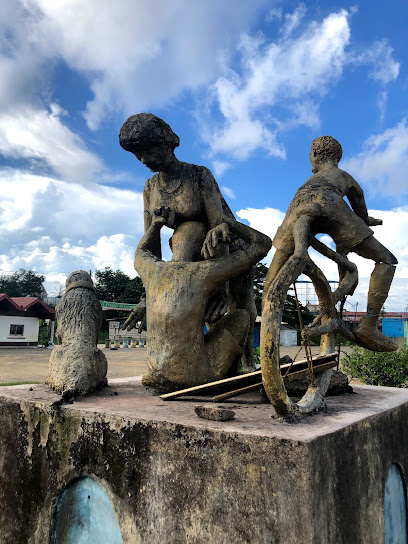
Maison H
Experience European-style dining in Douala at Maison H, a restaurant known for its pastries, ice cream, and inviting atmosphere.
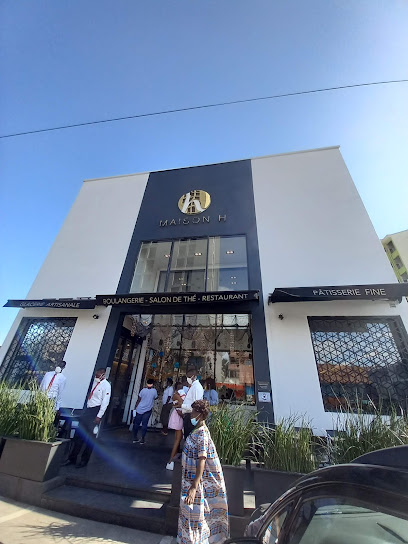
CanalOlympia Bessengué
Experience the best of cinema and culture at CanalOlympia Bessengué, Douala's premier movie theater and event space.
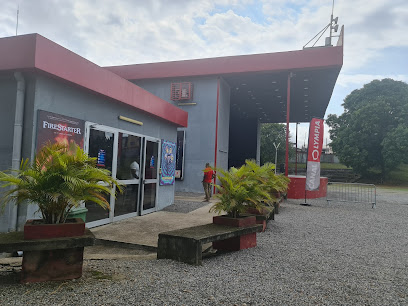
Cathedral of St Peter and Paul Bonadibong
Discover Douala's iconic Cathedral of St Peter and Paul Bonadibong: a blend of faith, history, and architectural grandeur in the heart of the city.
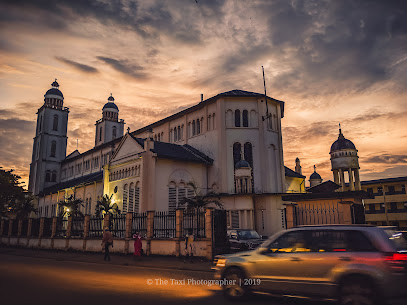
Parc Bonanjo
Discover a green oasis in Douala's historic Bonanjo district, perfect for relaxation and a peaceful escape from the city bustle.
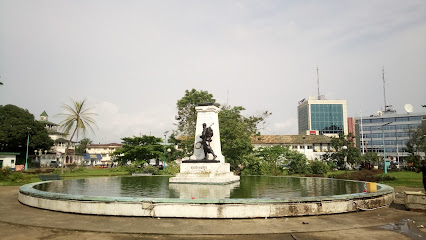
Maritime Museum Of Douala
Explore Cameroon's maritime history at the Douala Maritime Museum: artifacts, exhibits, and interactive displays await!
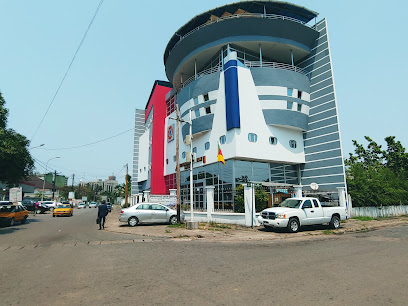
Doual'art
Discover contemporary African art at Doual'art in Douala, Cameroon, a vibrant center promoting local talent and cultural exchange.
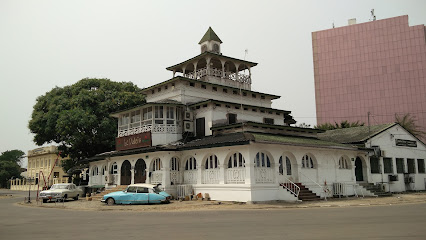
Port Authority of Douala
Experience the vibrant heart of Cameroon's economy at the bustling Port Authority of Douala, a key maritime hub on the Douala River.
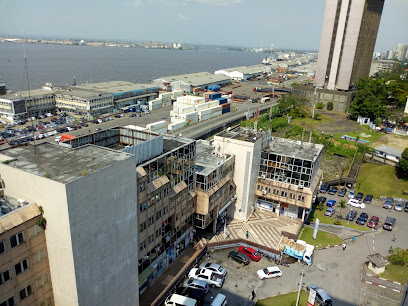
Le Discophage, Douala
Douala's vibrant bar with a unique musical atmosphere, offering a diverse selection of drinks and a cozy ambiance for music lovers.
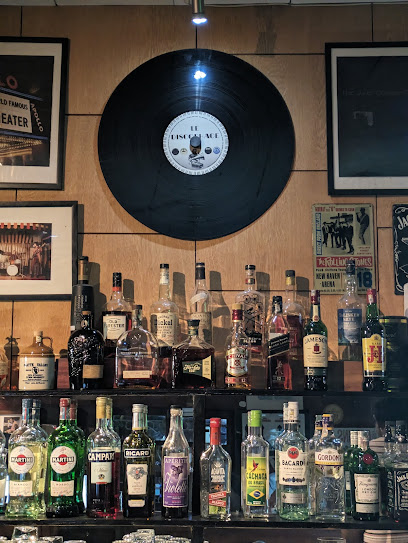
Galerie MAM
Discover contemporary African art at Galerie MAM in Douala, a vibrant center supporting artistic creation and cultural exchange.
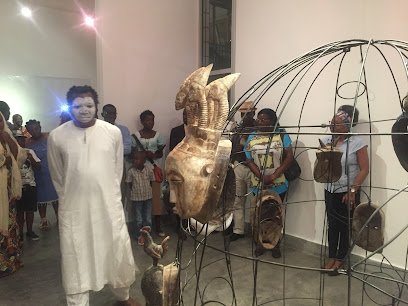
Monument Du Cinquantenaire De L'armée
A landmark in Douala honoring Cameroon's military history, with beautiful gardens for a peaceful retreat.
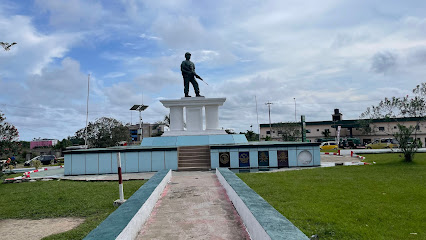
New Bell Mosque (ancienne étage) - Mosquée Quartier New Bell -Douala
Discover the spiritual heart of Douala at the New Bell Mosque, a cultural gem in Cameroon's vibrant New Bell neighborhood.
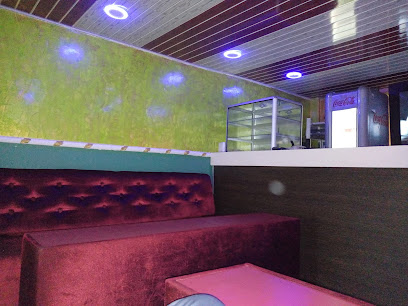
La Nouvelle Liberté
Discover La Nouvelle Liberté in Douala, a monumental symbol of freedom and resilience that reflects the rich cultural heritage of Cameroon.
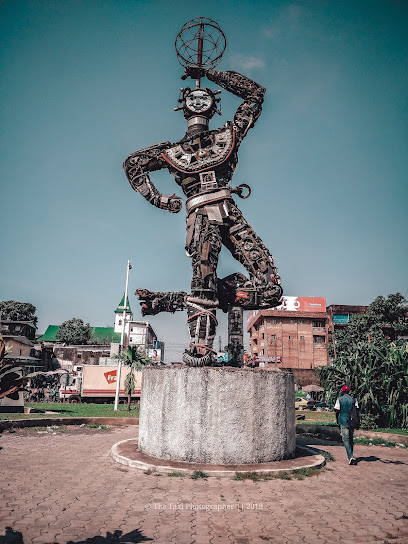
Deido plage
Discover Deido Plage in Douala: Sun, sand, local culture, and delicious Cameroonian cuisine await at this charming coastal escape.
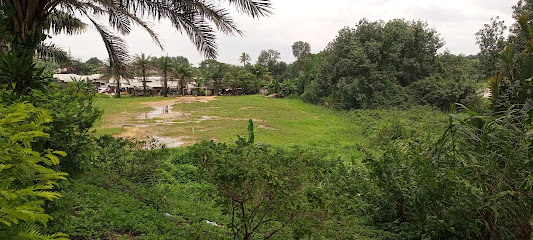
Unmissable attractions to see
Cathedral of St Peter and Paul Bonadibong
Discover the architectural beauty and spiritual significance of the Cathedral of St Peter and Paul Bonadibong, a must-visit landmark in Douala, Cameroon.
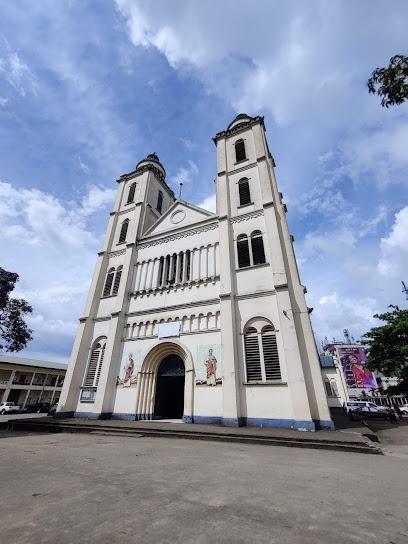
Parc Bonanjo
Explore the natural beauty and tranquility of Parc Bonanjo in Douala, a perfect retreat for nature lovers and city explorers alike.
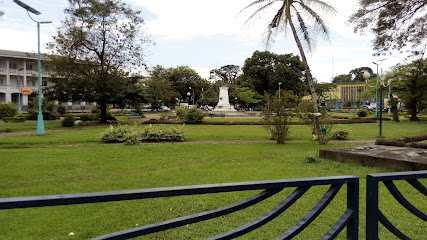
Maritime Museum Of Douala
Discover the Maritime Museum of Douala, where Cameroon’s rich maritime history comes alive through engaging exhibits and stunning artifacts.
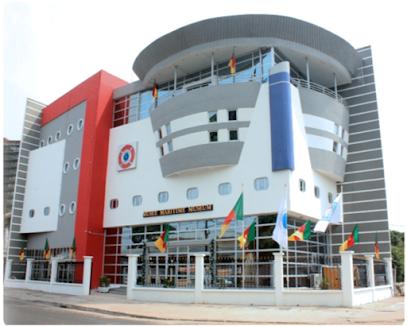
Doual'art
Experience the heartbeat of Cameroon's contemporary art at Doual'art, a vibrant cultural center in Douala, showcasing local and international talent.
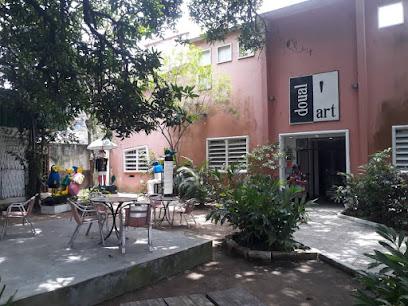
Carrefour Eto’o
Discover the vibrant cultural hub of Carrefour Eto’o in Douala, where shopping, dining, and local experiences come together in a lively atmosphere.
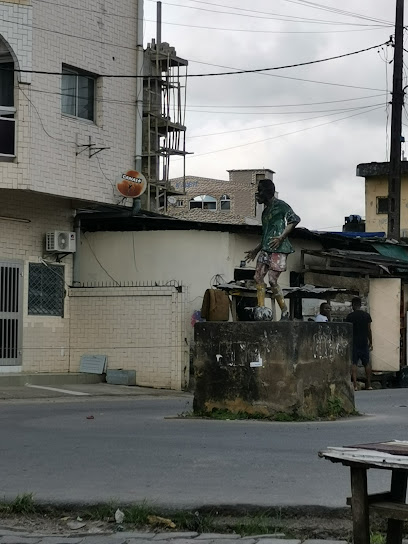
La Nouvelle Liberté
Discover La Nouvelle Liberté, a historical landmark in Douala that embodies the city's vibrant culture and rich heritage, perfect for tourists seeking authenticity.
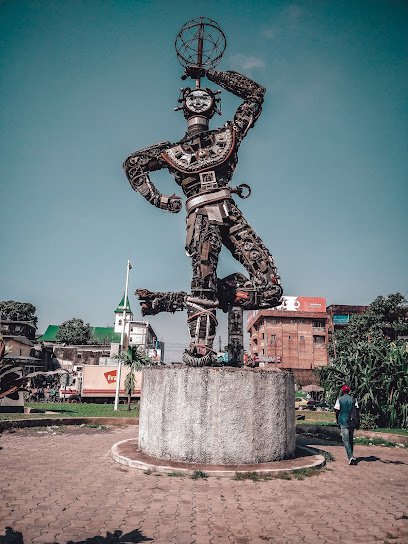
Cameroun Douala
Explore Douala, Cameroon: A vibrant city blending culture, history, and culinary delights with stunning waterfront views.
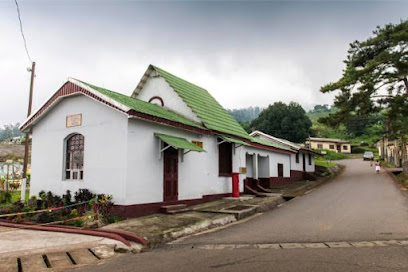
JAMA PARK
Explore Jama Park, a serene urban green space in Douala, perfect for relaxation, family outings, and nature walks amidst lush landscapes.
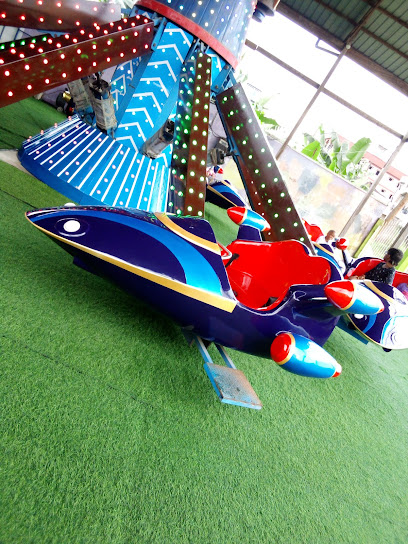
Deido plage
Explore the vibrant shores of Deido Plage in Douala, where coastal beauty meets rich cultural experiences for an unforgettable holiday.
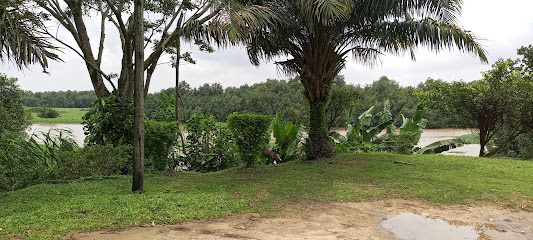
Wonder Park
Explore the tranquil beauty of Wonder Park in Douala, an urban oasis filled with greenery, family-friendly activities, and serene landscapes.
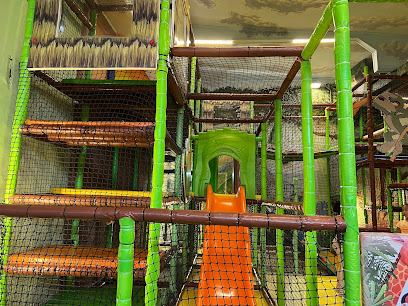
La Belle’s Cuisine
Experience the authentic taste of Cameroon at La Belle's Cuisine, a delightful restaurant in Douala offering a variety of traditional dishes.

TAMFU'S PLAZA
Experience local culture, cuisine, and crafts at Tamfu's Plaza, the vibrant heart of Bonabéri, a must-visit tourist attraction.
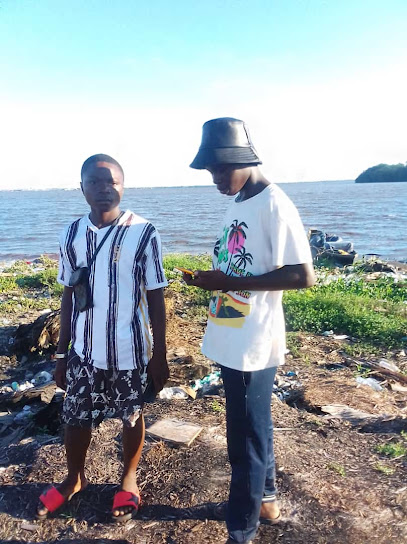
Cameroon RainBow Tour & Travels
Discover the charm of Douala with Cameroon RainBow Tour & Travels, your gateway to unforgettable experiences and rich cultural adventures.
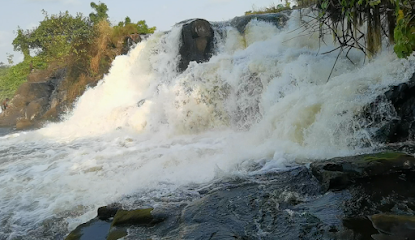
cité Mozart
Discover the artistic heart of Douala at Cité Mozart, a vibrant neighborhood filled with murals, music, and authentic local culture.

champ de canne
Discover tranquility at Champ de Canne, Douala's lush garden haven filled with vibrant flora and peaceful pathways for all travelers.

Essential places to dine
Maison H
Experience the best of Douala's culinary scene at Maison H, where local flavors meet international cuisine in a stunning atmosphere.
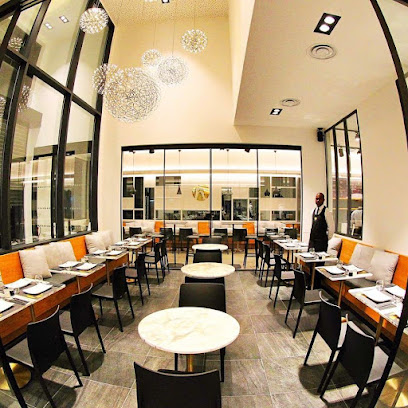
Saga Africa Restaurant - Akwa, Douala
Experience a fusion of African and European flavors at Saga Africa Restaurant in Akwa, Douala – a must-visit culinary destination!
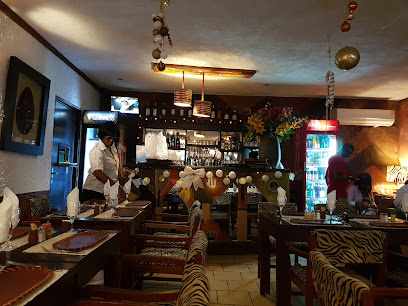
Restaurant Le Fouquet
Experience the essence of Cameroonian cuisine at Restaurant Le Fouquet in Douala – where every dish tells a story.
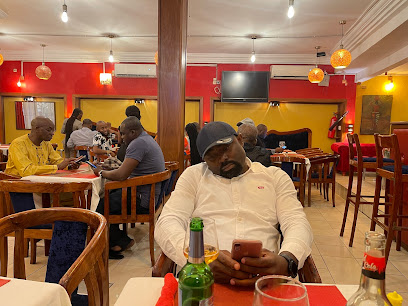
LA PIZZERIA
Experience authentic Italian cuisine at La Pizzeria in Douala - where delicious flavors meet vibrant ambiance.
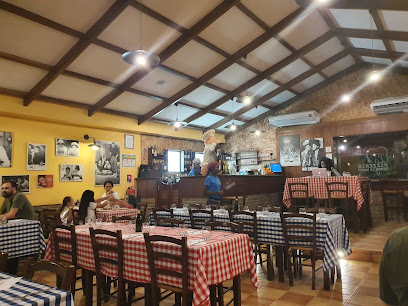
Le Grilladin Restaurant, Douala
Discover authentic Cameroonian cuisine at Le Grilladin Restaurant in Douala – where every meal tells a story.
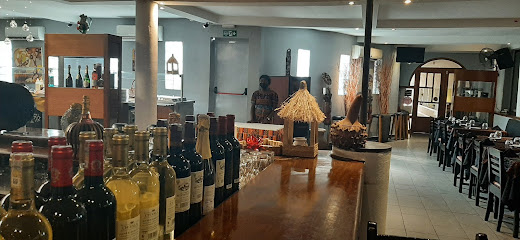
White House Restaurant
Discover authentic Cameroonian cuisine at the White House Restaurant in Douala – a perfect blend of local flavors and warm hospitality.
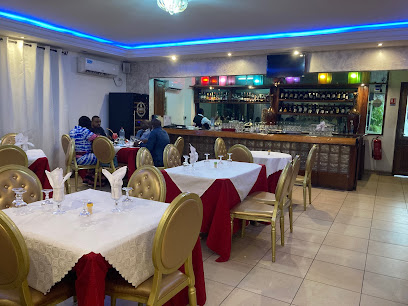
Restaurant 5 Fourchettes
Experience exquisite flavors at Restaurant 5 Fourchettes in Douala – where local tradition meets global cuisine.
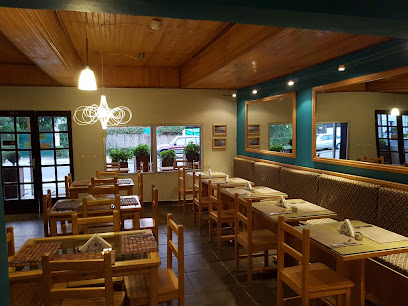
Le Boj, Douala
Discover the vibrant culinary scene at Le Boj in Douala—where local flavors meet international flair in an inviting lounge atmosphere.
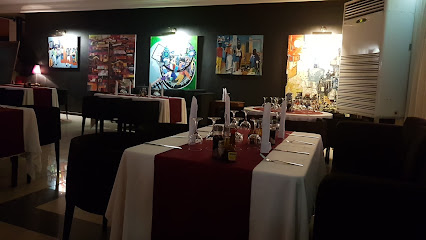
Restaurant la Méditerranée
Experience exquisite Greek and Italian cuisine at Restaurant la Méditerranée in Douala – a perfect blend of flavors in an inviting setting.
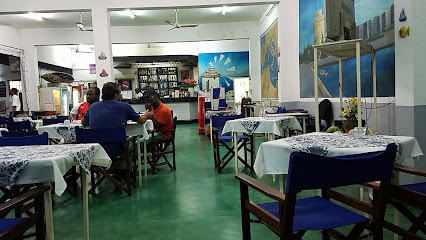
LA MARQUISE RESTAURANT
Experience the best of local flavors at La Marquise Restaurant in Douala - where tradition meets modernity in every dish.
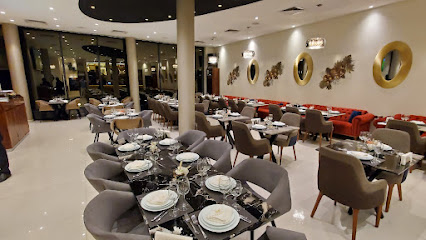
Bombay Masala
Experience authentic Indian flavors in Douala at Bombay Masala – where every dish tells a story.
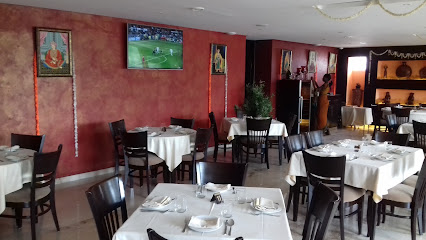
Lounge n Garden
Discover exquisite fusion cuisine amidst lush gardens at Lounge n Garden in Douala – where culinary delights meet serene relaxation.
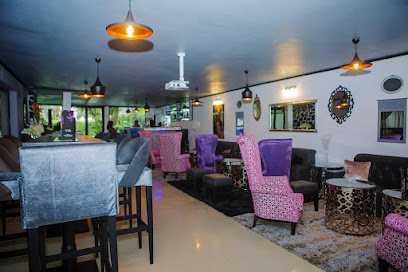
La Fourchette
Experience the fusion of local flavors and international cuisine at La Fourchette in Douala—where every meal is a celebration.
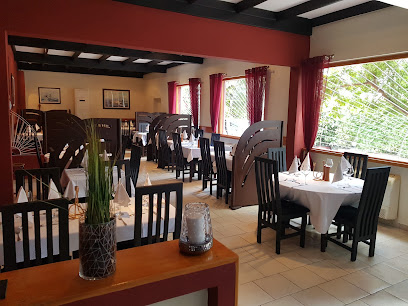
White House Restaurant, Douala
Discover authentic Cameroonian cuisine at White House Restaurant in Douala – where flavor meets tradition in every bite.
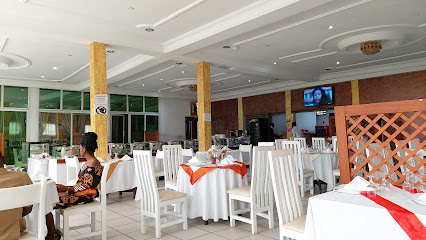
African food by Emy
Experience authentic African cuisine at its finest in Douala's vibrant dining scene.
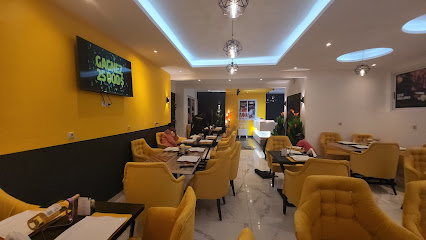
Markets, malls and hidden boutiques
Douala Grand Mall
Discover Douala Grand Mall: A shopping paradise and dining hub in the heart of Cameroon, featuring local and international brands.
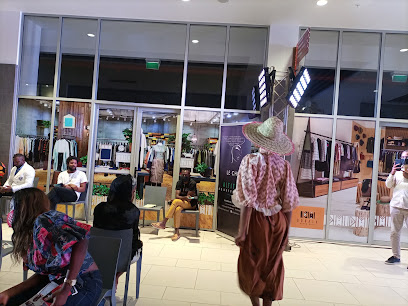
Prince fashion
Explore the latest in electronics at Prince Fashion, Douala's go-to destination for cutting-edge gadgets and appliances.
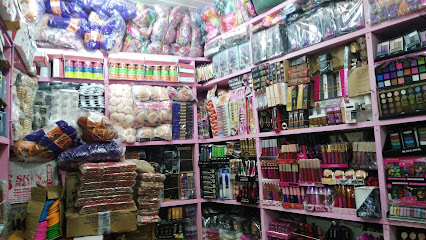
Numero Uno
Experience the vibrant fashion scene of Douala at Numero Uno, your go-to clothing store for unique Cameroonian styles and affordable prices.
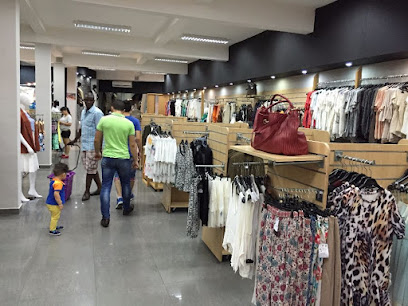
EKOOLO.CM
Discover an exquisite shopping experience at EKOOLO.CM in Douala, where fashion meets local flair and variety awaits every visitor.
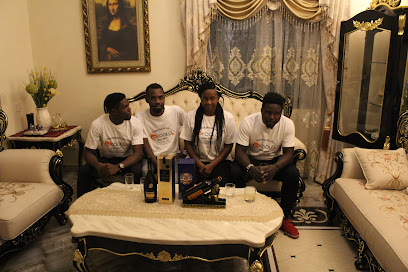
African Soul Market
Explore the African Soul Market in Douala for unique handicrafts, gourmet groceries, and an authentic taste of Cameroonian culture.
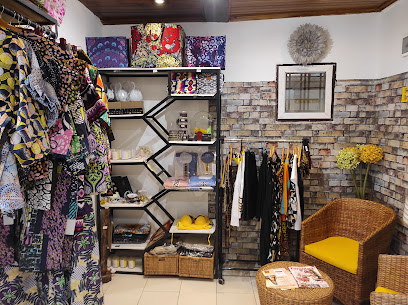
Mboppi market
Explore Douala's Mboppi Market, a bustling hub for unique watches and local crafts, immersing you in the heart of Cameroonian culture.
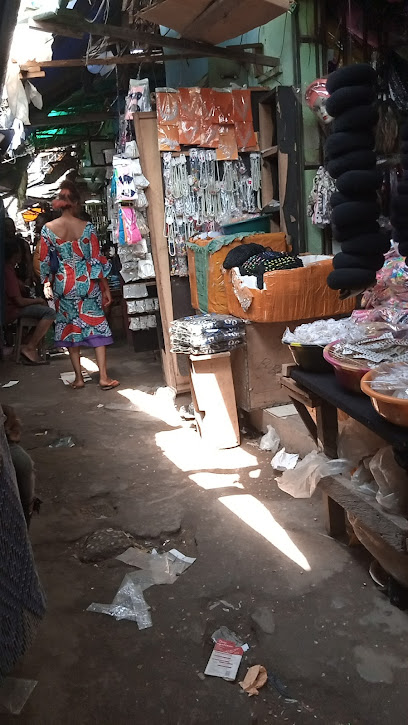
LE COMPTOIR UNIQUE
Discover the charm of Le Comptoir Unique, Douala's beloved bookstore, offering a rich selection of literature and a cozy atmosphere for all book lovers.
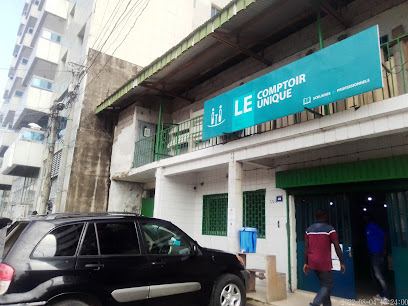
Authentik Store
Explore the vibrant Authentik Store in Douala for the best outdoor sports gear and stylish boots, perfect for your adventures in Cameroon.
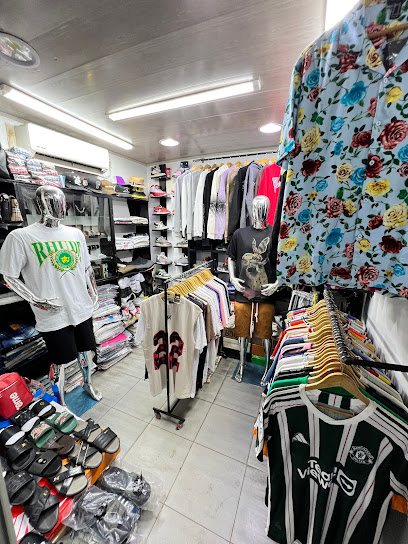
nw237Store
Explore Douala's vibrant e-commerce scene at nw237Store, where fashion meets local culture in a unique shopping experience.
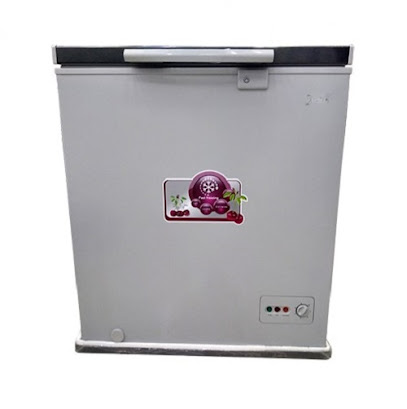
LA MARQUE
Explore LA MARQUE for a trendy shopping experience in Douala, offering a unique blend of local and contemporary fashion to elevate your wardrobe.
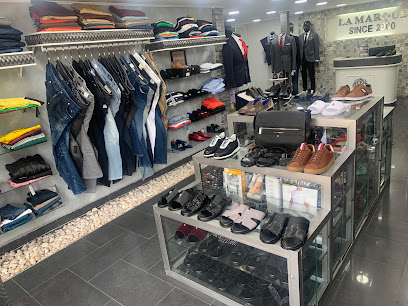
MOLLA SHOPPING
Explore the vibrant fashion scene at Molla Shopping in Douala, where style meets affordability for every shopper.
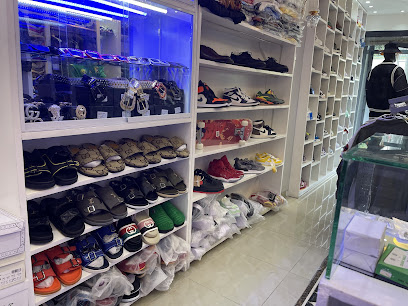
Original Marines Douala
Discover the latest fashion trends and stylish accessories at Original Marines Douala, a vibrant shopping destination in the heart of the city.
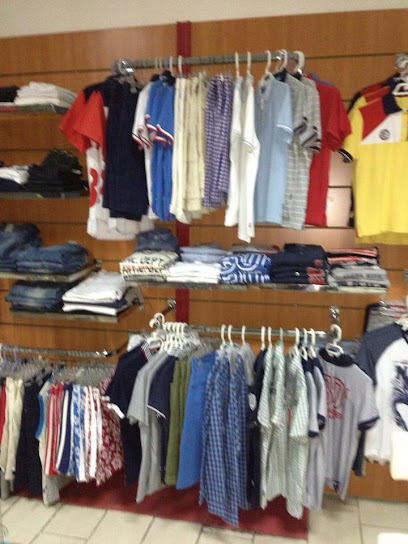
The Shop MethodKing
Explore Douala's fashion scene at The Shop MethodKing, where unique styles and local trends meet in a vibrant shopping experience.
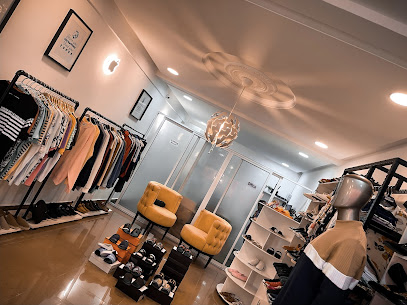
Kael Boutique
Experience Douala's local charm at Kael Boutique, your go-to convenience store for unique products, snacks, and essentials.
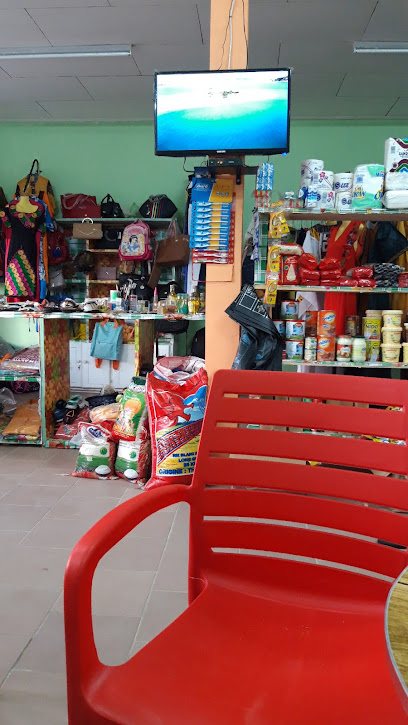
Paloma Boutique, Douala
Experience the vibrant culture of Douala at Paloma Boutique, where local craftsmanship meets modern style in a unique shopping haven.
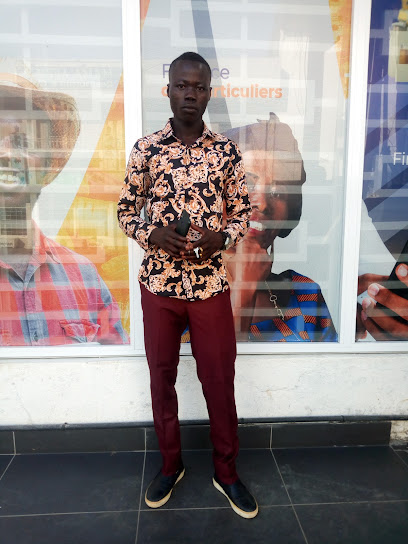
Essential bars & hidden hideouts
Black&White Douala
Discover the vibrant nightlife of Douala at Black&White, where dining meets entertainment in an electrifying lounge atmosphere.
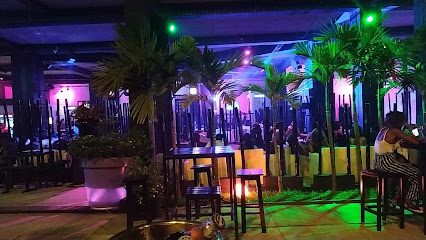
Stardust
Discover Douala's nightlife at Stardust, a stylish bar offering exquisite cocktails and a lively atmosphere for an unforgettable evening.
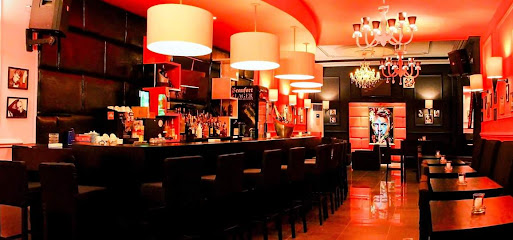
Gabon Bar
Experience the lively nightlife of Douala at Gabon Bar, where locals and travelers unite over drinks in a vibrant atmosphere.
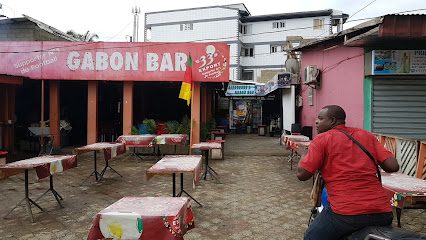
Lounge n Garden
Discover the enchanting flavors of Lounge n Garden in Douala, where culinary creativity meets a serene lounge atmosphere.
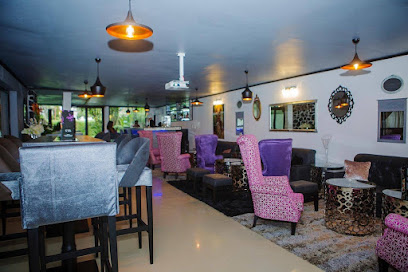
Bubble Bar
Discover the vibrant nightlife at Bubble Bar, Douala's go-to spot for refreshing drinks, lively atmosphere, and unforgettable experiences.
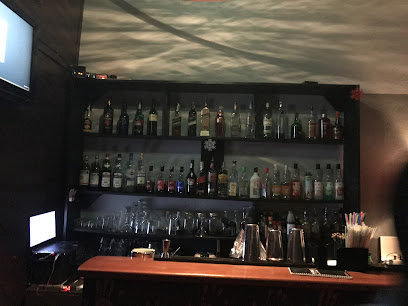
BE BOP
Experience Douala's nightlife at BE BOP, where innovative cocktails and a vibrant atmosphere await every visitor.
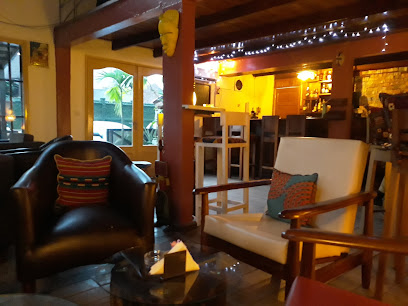
Lynk
Experience the vibrant nightlife of Douala at Lynk, a trendy bar and lounge offering exquisite drinks and a lively atmosphere.
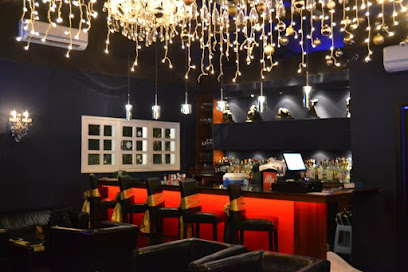
WANTED LOUNGE
Discover the vibrant nightlife of Douala at WANTED LOUNGE, where cocktails meet local culture in a lively atmosphere.
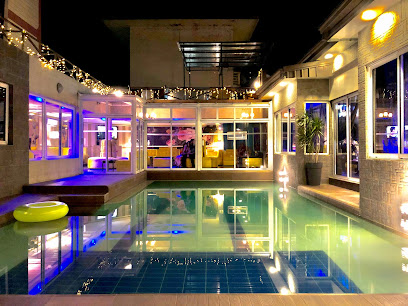
Bronkozor Bar, Douala
Discover the lively ambiance of Bronkozor Bar in Douala, where local culture meets refreshing drinks in a vibrant atmosphere.
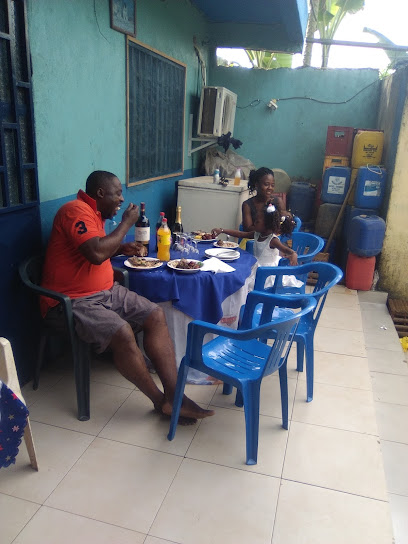
Le Discophage, Douala
Experience the lively ambiance and delightful drinks at Le Discophage, one of Douala's top bars for tourists and locals alike.
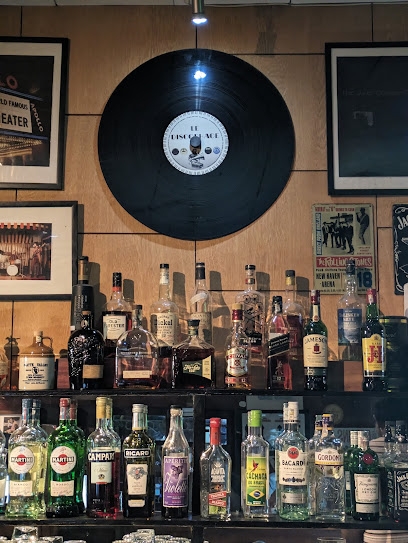
Panamera Lounge
Discover the vibrant atmosphere of Panamera Lounge in Douala, where elegance meets nightlife and culinary delights await.
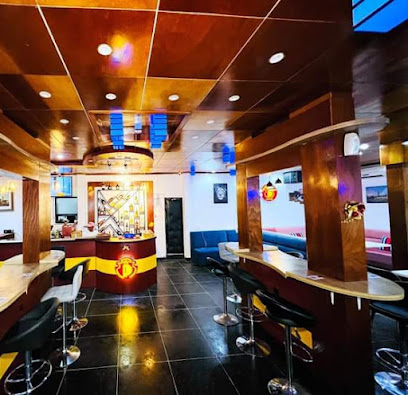
White Smoke Bar 237
Experience the vibrant nightlife of Douala at White Smoke Bar 237, the perfect lounge for refreshing cocktails and local culture.
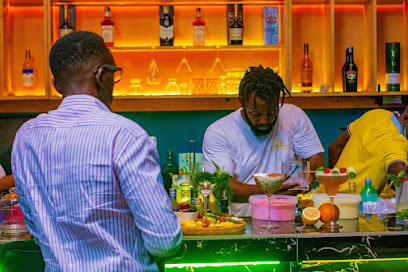
SKY BAR
Discover the vibrant flavors of Douala at SKY BAR, where sizzling grills meet stunning city views in a lively atmosphere.
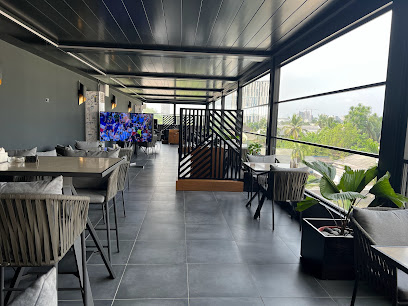
Bar Chez Daria
Discover the lively atmosphere of Bar Chez Daria in Douala, a perfect spot for refreshing drinks and local culture.
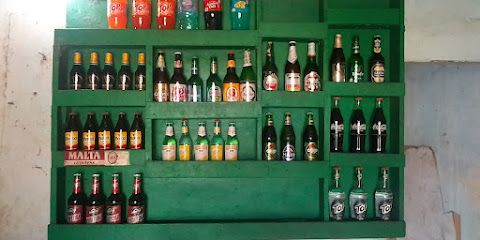
Local Phrases
-
- HelloMbote
[m-boh-teh] - GoodbyeKwedi
[kweh-dee] - YesEh
[eh] - NoTe
[teh] - Please/You're welcomeMboté
[m-boh-teh] - Thank youNa nyo
[nah nyoh] - Excuse me/SorryPardon
[pahr-dohn] - How are you?Na la?
[nah lah] - Fine. And you?Na la. Na nyongo?
[nah lah. nah nyohn-goh] - Do you speak English?Wet yi yan Anglais?
[weht yee yahn ahn-glay] - I don't understandNa mba sabi
[nah mbah sah-bee]
- HelloMbote
-
- I'd like to see the menu, pleaseNa wuna bô menu, s'il vous plaît
[nah woo-nah boh meh-noo, see-voo pleh] - I don't eat meatNa mba nyam nyama
[nah mbah nyahm nyah-mah] - Cheers!Ese!
[eh-seh] - I would like to pay, pleaseNa wuna bô pay, s'il vous plaît
[nah woo-nah boh peh, see-voo pleh]
- I'd like to see the menu, pleaseNa wuna bô menu, s'il vous plaît
-
- Help!Secours!
[seh-coor] - Go away!Di go!
[dee goh] - Call the Police!Di telephone la police!
[dee teh-leh-fohn lah poh-lees] - Call a doctor!Di telephone docteur!
[dee teh-leh-fohn dohk-teur] - I'm lostNa mba perdu
[nah mbah pehr-doo] - I'm illNa mba malade
[nah mbah mah-lahd]
- Help!Secours!
-
- I'd like to buy...Na wuna bô...
[nah woo-nah boh...] - I'm just lookingNa mba di look
[nah mbah dee look] - How much is it?Na bô combien?
[nah boh kohm-byen] - That's too expensiveNa cher
[nah shehr] - Can you lower the price?Wet yi di tchele prix?
[weht yee dee cheh-leh pree]
- I'd like to buy...Na wuna bô...
-
- What time is it?Na l'heure na?
[nah luh-heur nah] - It's one o'clockIl est une heure
[eel ehst oon-ur] - Half past (10)Demi dix
[deh-mee dees] - MorningMatin
[mah-tahn] - AfternoonAprès-midi
[ah-pray mee-dee] - EveningSoir
[swah-r] - YesterdayHier
[yehr] - TodayAujourd'hui
[oh-zhoor-dwee] - TomorrowDemain
[deh-mahn] - 1Un
[uhn] - 2Deux
[duh] - 3Trois
[twah] - 4Quatre
[ka-truh] - 5Cinq
[sank] - 6Six
[sees] - 7Sept
[sept] - 8Huit
[weet] - 9Neuf
[nuf] - 10Dix
[dees]
- What time is it?Na l'heure na?
-
- Where's a/the...?Wey di...
[wey dee...] - What's the address?Na adres?
[nah ah-drehss] - Can you show me (on the map)?Wet yi di montre mi?
[weht yee dee mohn-tray mee] - When's the next (bus)?Wey prochain (bus)?
[wey proh-shahn (boos)] - A ticket (to ....)Un ticket (à ....)
[uhn tee-kay (ah)]
- Where's a/the...?Wey di...
History of Douala
-
Douala, situated on the banks of the Wouri River, has been a site of human habitation for centuries. The area was initially settled by the Duala people, who are part of the larger Sawa ethnic group. The Duala people established a thriving community based on fishing, trading, and farming. Their strategic position along the river facilitated trade with inland communities and later, European traders.
-
The first Europeans to arrive in Douala were the Portuguese in the 15th century, followed by the Germans in the late 19th century. In 1884, the Germans signed a treaty with local chiefs, making Douala a part of the German colony of Kamerun. The city became a crucial port and administrative center, undergoing significant infrastructure development, including the construction of roads, railways, and the port.
-
During World War I, British and French forces occupied Douala in 1914, forcing the Germans to surrender. After the war, the League of Nations divided Kamerun between France and Britain. Douala fell under French mandate and continued to grow as a major economic hub. The French administration invested in modernizing the city, further developing its port and industrial sectors.
-
Cameroon gained independence from France on January 1, 1960. Douala emerged as the economic capital of the newly independent nation, while Yaoundé became the political capital. The post-independence era saw rapid urbanization and population growth in Douala, transforming it into a bustling metropolis. The city continued to attract investment and migrants from various regions, contributing to its diverse cultural landscape.
-
In the latter half of the 20th century and into the 21st century, Douala solidified its position as the economic powerhouse of Cameroon. The city is home to the largest port in Central Africa, which is vital for the country's exports and imports. Major industries in Douala include petroleum, manufacturing, and finance. Ongoing infrastructure projects aim to modernize the city and improve living conditions for its residents.
-
Douala is a melting pot of cultures, with a rich blend of ethnicities, languages, and traditions. The city's cultural scene is vibrant, featuring music, dance, and art from various Cameroonian groups. Notable events include the Ngondo Festival, an annual celebration by the Sawa people that honors their ancestors and includes traditional boat races, rituals, and performances. This cultural diversity is a testament to Douala's historical role as a center of trade and interaction.
-
Douala's architecture reflects its historical layers, from colonial-era buildings to contemporary structures. Noteworthy landmarks include the Pagoda, a former royal palace built in the early 20th century, and the Cathedral of Saints Peter and Paul, an example of colonial ecclesiastical architecture. These sites offer a glimpse into the city's past and its evolution over time.
Douala Essentials
-
Douala is accessible via Douala International Airport (DLA), which is the main entry point for international travelers. Several major airlines operate direct flights to Douala from Europe, the Middle East, and other African countries. Once you arrive at the airport, you can take a taxi or arrange for an airport shuttle to your accommodation. Additionally, Douala is well-connected by road and rail, making it possible to travel from other major cities in Cameroon.
-
Getting around Douala is relatively easy, but it can be hectic due to traffic congestion. Taxis are the most common mode of transportation and are available throughout the city. You can opt for shared taxis, which are cheaper but less comfortable, or private taxis. Motorcycle taxis, known as 'benskins', offer a quicker but riskier alternative. Public buses and minibuses (known as 'clandos') are also available but can be crowded. Car rentals are an option, but driving can be challenging due to local traffic conditions.
-
The official currency in Cameroon is the Central African CFA Franc (XAF). Credit cards are accepted in major hotels, restaurants, and some shops, but it's advisable to carry cash for smaller establishments and markets. ATMs are available throughout the city, but ensure your card is compatible with international transactions. Currency exchange services are also available at the airport and in various locations around the city.
-
Douala is generally safe for tourists, but it's important to exercise caution. Areas such as New Bell and some parts of Bonaberi have higher crime rates and should be avoided, especially after dark. Petty theft, such as pickpocketing and bag snatching, can occur in crowded places. Always keep your belongings secure and avoid displaying valuables. Stick to well-lit areas and use trusted transportation options.
-
In case of an emergency, dial 112 for general assistance, 113 for police, and 118 for fire services. Major hospitals like Laquintinie Hospital and Douala General Hospital offer emergency medical services. It is highly recommended to have travel insurance that covers medical emergencies. Pharmacies are widely available for minor health issues and medications. Always keep a list of important contacts and local emergency numbers handy.
-
Fashion: Do dress modestly, especially in conservative areas. Avoid wearing overly revealing clothing. Religion: Do respect local customs and religious practices. Remove your shoes before entering mosques and avoid photographing people during prayer times. Public Transport: Do be patient and respectful when using public transport. Don't engage in loud conversations or use your phone excessively. Greetings: Do greet people with a handshake, and use the right hand or both hands. Don't skip greetings; it's considered impolite. Eating & Drinking: Do try local dishes and accept food offerings graciously. Don't eat or drink in public during Ramadan if you are in a Muslim-majority area.
-
To experience Douala like a local, visit the Marché des Fleurs for fresh produce and local crafts. Engage with locals at Bonanjo Park or enjoy a meal at a local 'maquis' (open-air restaurant). Attend a football match at the Stade de la Réunification for an authentic experience. Don't miss the Douala Maritime Museum to learn about the city's history. For a unique experience, take a boat trip along the Wouri River.
Trending Landmark in Douala
-
Rond-Point Deido
-
Parcours Vita
-
Maison H
-
CanalOlympia Bessengué
-
Cathedral of St Peter and Paul Bonadibong
-
Parc Bonanjo
-
Maritime Museum Of Douala
-
Doual'art
-
Port Authority of Douala
-
Le Discophage, Douala
-
Galerie MAM
-
Monument Du Cinquantenaire De L'armée
-
New Bell Mosque (ancienne étage) - Mosquée Quartier New Bell -Douala
-
La Nouvelle Liberté
-
Deido plage
Nearby Cities to Douala
-
Things To Do in Tiko
-
Things To Do in Edea
-
Things To Do in Buea
-
Things To Do in Limbe
-
Things To Do in Nkongsamba
-
Things To Do in Malabo
-
Things To Do in Kribi
-
Things To Do in Luba
-
Things To Do in Dschang
-
Things To Do in Bafoussam
-
Things To Do in Bafia
-
Things To Do in Mbouda
-
Things To Do in Calabar
-
Things To Do in Yaoundé
-
Things To Do in Mamfe












